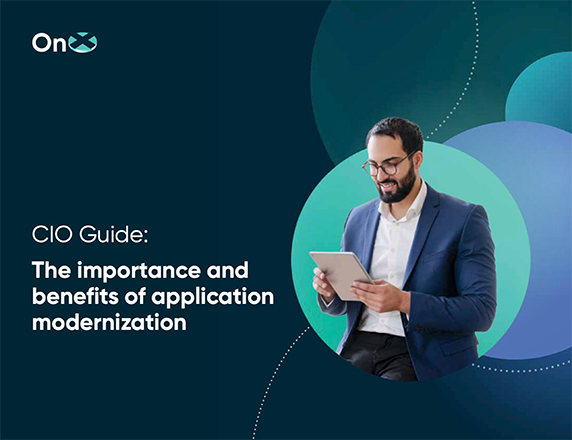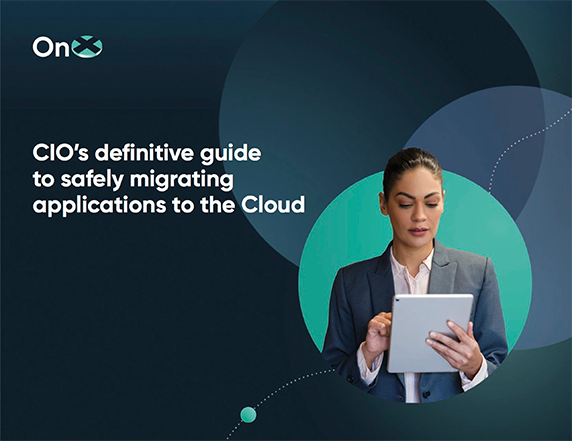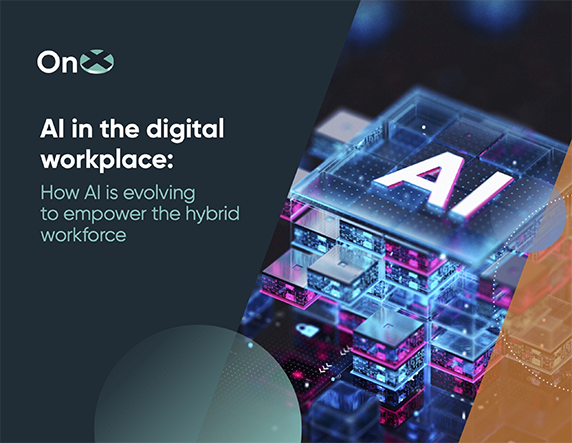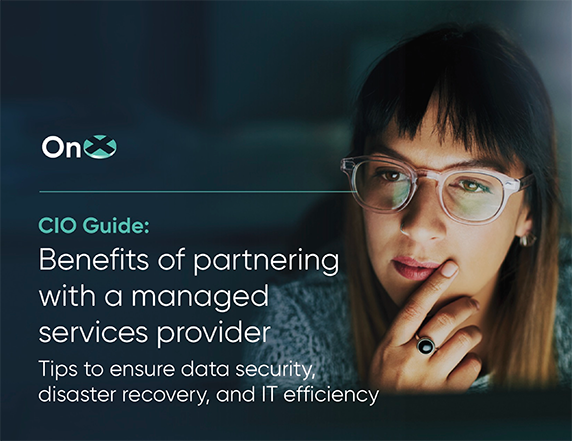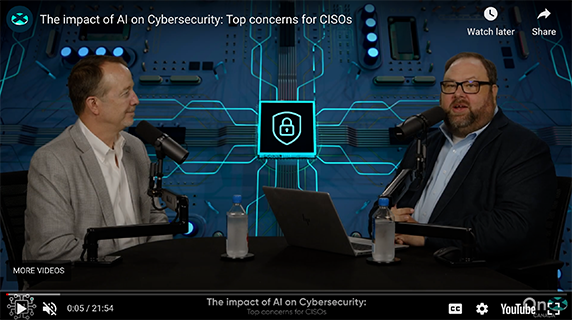
Gartner predicts 70% of all digital workloads will be in a public cloud by 2025. With this rapid increase in dependence on the Cloud, cloud security is more important than ever. Companies must implement protocols, frameworks, and tools that protect cloud resources to ensure the benefits of cloud technology outweigh the risks associated with digital working.
Read on to learn how companies will benefit from properly implementing the Cloud into their workforce, as well as how to ensure data, infrastructure, networks, applications, and end-user credentials are correctly configured and monitored.
Why is cloud security so important?
One of the primary benefits of cloud technology is risk reduction. According to Gartner, user error will cause 99% of security breaches by 2025—but this doesn’t mean cloud security will be risk-free. Organizations will continue to face challenges in compliance, complex threat landscapes, and misconfigured systems.
For instance, one of the main sources of complexity is changing governmental and regulatory decisions. Due to the increasing reliance on cloud technology, there is a growing demand for robust data protection controls, such as authentication and encryption. Companies must continually refresh their knowledge, update their resources, and upkeep their systems to remain compliant. This challenging endeavor requires constant vigilance, and organizations often rely on cloud security partners to ensure they stay compliant with changing regulations.
These regulations are being updated for good reason. Bad actors attack organizations of all sizes with ever-changing methods, such as so-called Malware as a Service. Data breaches can and do still happen, meaning maintaining a strong cloud security system is a constant process. Maintenance is one of the major sources of breaches, along with user error. Properly implementing cloud security requires diverse expertise, from server infrastructure to platform upkeep. This complexity makes misconfigurations common, with 90% of apps inspected by the Open Web Application Security Project (OWASP) having some kind of misconfiguration.
How does cloud security come in?
Maximizing the benefits of cloud technology requires a relationship between the user and a vendor. The roles are divided into:
- User – Responsible for securing apps, data, and access.
- Vendor – Responsible for securing infrastructure, networks, and servers.
Working together, the user and the vendor can achieve a zero trust framework—where every request, user ID, and access request must be verified and authenticated. At OnX Canada, we believe in achieving this by adopting the six pillars of cloud security:
- Security assessments and testing.
- Patch management.
- Managed backup (BaaS).
- Cloud security posture management (CPSM).
- Disaster recovery (DRaaS).
- Cloud monitoring and management.
Read more: Improving enterprise security with zero trust principles
The cloud itself is complex
Within the existing cloud service models, there are four types of cloud environments that have their own pros and cons—public, private, hybrid, and multi-cloud.
- Public clouds can be shared by millions of users, such as Azure and AWS, and use a shared responsibility model in which the vendor takes on much of the cloud security responsibilities.
- Private clouds are instead managed by a single organization, making them solely responsible for cloud security.
- Hybrid clouds allow organizations to get the best of both worlds, making them ideal for DevOps teams that need the strict protection of private environments, as well as the scalability of public environments.
- Finally, multi-cloud environments allow companies to choose multiple public clouds to optimize costs, maximize availability, and manage compliance.
What are the nine key benefits of cloud security?
It has never been more important to realize the benefits of cloud technology. Here are nine ways cloud security helps underscore the strengths of the Cloud:
1. Scalability
As demand increases, cloud security can scale to meet new challenges. The adaptability of the cloud allows companies to add or deploy new security services as needed, with real-time scaling, meaning features can be ramped up or down depending on traffic.
2. Segmentation
Preventing hackers from gaining unauthorized access is integral to cloud security. Segmenting networks through limits on user and device permissions lowers the damage hackers can do even if they gain access to a cloud network.
3. Agility
Choosing the right cloud security model, from SD-WAN to SASE, can increase adaptability and reduce the time needed to activate new branches. Network edge security solutions also secure user identification, access, and device traffic—all while maintaining the agility cloud solutions are known for.
4. Cost
Cost-effectiveness is one of the significant benefits of cloud technology. The same applies to cloud security, as organizations no longer need to invest in dedicated hardware for an on-premises data center. Instead, cloud service providers own that expense, allowing organizations to move from CapEx to OpEx while saving time and resources. The right cloud security partner will save even further costs through security experts who assist in implementing security tools and reducing unnecessary redundancies.
5. Simplicity
Consolidating enterprise security in one centralized location means the vendor and the user can oversee potential breach points through a singular view. Having controls in one place simplifies the entire security system and makes deploying patches or disaster recovery protocols easier.
6. Improved customer service
When customers demand 24×7 support, organizations need the visibility cloud security provides to constantly monitor threats across the entire infrastructure, from apps to networks.
7. Easier compliance
Compliance is a primary concern for every organization, not just highly regulated industries, with new rules from GDPR and other regulators expanding into every sector. The right security partner is essential for staying up to date with the latest compliance regulations. A team of security experts such as those from OnX helps organizations adopt compliant governance frameworks and maintain compliance no matter the frequency of changes.
8. Secure backups and disaster recovery
Redundancies and backups are crucial during a data breach or natural disaster. With cloud systems, organizations can respond at pace, using disaster recovery services to get back to standard operational efficiency faster than traditional tape-based recovery systems.
9. Advanced threat detection
Automated extended threat detection (XDR) and other cloud-based antivirus tools allow organizations to take on ransomware, distributed denial of service (DDoS), and social engineering attacks head-on.
Realizing the benefits of cloud technology with the right security partner
Using the Cloud to its fullest capabilities while maintaining cloud security is complex and requires a deep understanding of the technology at every level. Combined with the increasing variety of attacks from bad actors where a single data breach can result in millions of dollars lost, as well as damaging an organization’s reputation and workforce, the need for an experienced cloud security partner becomes clear.
Organizations require a security partner that is fully abreast of the current threat landscape—understanding the potential risk of one misconfiguration in revealing sensitive data of thousands, or even millions, of end users. OnX’s security team provides that expertise.
Partnering with a vendor-agnostic IT provider means organizations can use the best solutions for their unique environments. Our team will guide you every step of the way, working with your IT team to achieve industry best practices and frameworks, including:
- Use frameworks such as zero trust to ensure security.
- Create strong passwords that stand up against cyberattacks.
- Implement multi-factor authentication (MFA).
- Remain compliant with the latest regulations.
- Receive consistently updated security awareness training.
Reach out to an OnX cloud security team member to get started with correctly configuring and protecting your cloud network.

